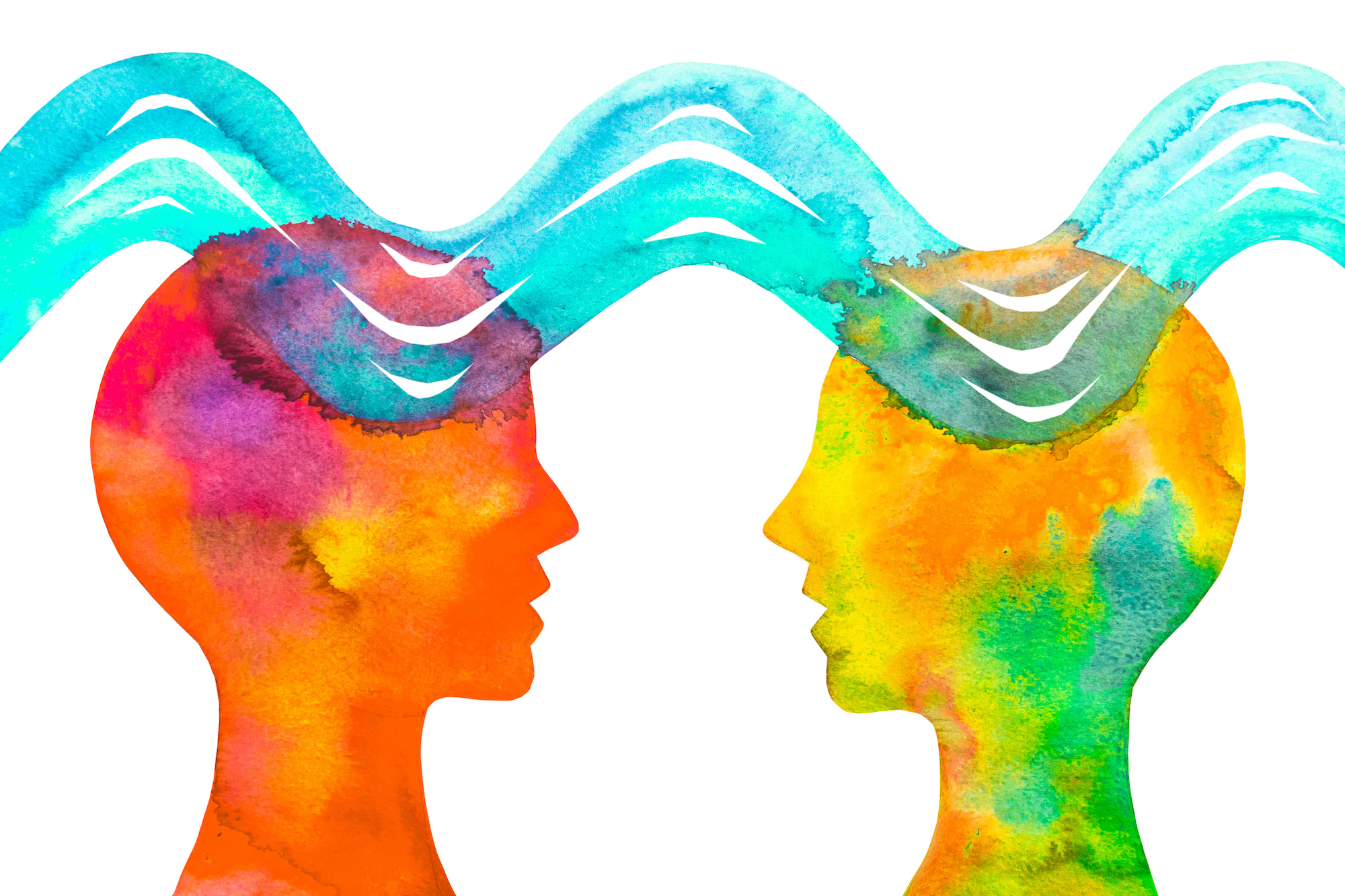What is empathy and why do I need it?
In 2020, the desire to be a more compassionate, empathetic society became an important topic. How can we better understand another person and strengthen our connections to lift each other up? A lot of this comes down to empathy, and there’s more to the concept than you may think.

Table of contents
What is empathy? Sympathy vs. empathy3 Types of empathyThe science of empathyHow empathy benefits you and your relationshipsWhat is an empath?How to cultivate empathyWhat is empathy?
The Oxford Learner’s Dictionary defines empathy as “the ability to understand and share the feelings of another.” This doesn’t just apply to friends or people you know; it encompasses all beings—animals, complete strangers, even fictional characters. If you’ve cried while watching a movie or reading a book, you’ve already experienced this feeling firsthand.
Empathy comes in different forms but essentially comes down to the ability to feel what another person feels, to feel what it’s like to walk a mile in their shoes. It’s the ability to understand a person’s pain or their point of view. Empathy is challenging, but it’s also important in the context of interacting with people you disagree with or don’t know.
Sympathy vs. empathy
Sympathy is a related concept, but it’s quite different from empathy. Oxford defines sympathy as “the feeling of being sorry for someone; showing that you understand and care about someone's problems.” It more closely resembles pity because it’s discomfort at someone else’s personal distress.
Empathy, on the other hand, entails putting yourself in someone else’s shoes, and then imagining or feeling that distress. Put simply, sympathy is “I am sorry you’re sad,” whereas empathy is “I feel sad because you’re sad.”
3 Types of empathy
Scientifically, there are three recognized types of empathy: affective (emotional), somatic (physical), and cognitive (mental).
Affective empathy
Also known as “emotional empathy,” this is about emotionally feeling and responding accordingly. Affective empathy is quite a powerful sensation.
Have you ever felt heartbroken alongside a close friend who’s experienced loss? Or felt elated when your partner achieved a major goal? Wept tears of grief witnessing a natural disaster impact a community? Then you’ve experienced emotional empathy.
Somatic empathy
People who feel empathy of this sort physically feel what someone else feels. (Have you ever seen someone get hurt and thought, “I literally know how they feel”? That’s somatic.)
Parents may feel physical anxiety and nervousness as their child takes the stage for a spelling bee or musical performance. That’s a form of physical, motor, somatic empathy.
Cognitive empathy
This form of empathy can be likened to emotional intelligence. It involves the ability to perceive and process the emotions of others. On this level, you “get it,” even if you don’t necessarily feel it. You can intellectually understand where someone is coming from.

The science of empathy
The psychological concept comes from the word empathy, which came from a translation of the German term einfühlung—“feeling into,” in English—via psychologist Edward B. Titchener.
Once introduced to the psychological community, different theories on empathy were born, including the popular Theory of Mind, or ToM. This looks at empathy as “the ability to attribute mental states to ourselves and others.” Within ToM, neuroscience research suggests mirror neurons, or the mirror neuron system, play a fundamental role in the physiology of empathy.
How empathy benefits you and your relationships
“Self-absorption in all its forms kills empathy, let alone compassion,” wrote psychologist and psychology journalist Daniel Goleman, formerly of The New York Times. “When we focus on ourselves, our world contracts as our problems and preoccupations loom large. But when we focus on others, our world expands. Our own problems drift to the periphery of the mind and so seem smaller, and we increase our capacity for connection—or compassionate action.”
Empathy leads to compassion, which helps when you’re building rapport in the workplace or having a difficult discussion with your roommate. It can help deepen your connection to other human beings in your life, create a stronger bond in your relationships (thus strengthening your own support system), and bring more joy and emotional intensity to your life.
What is an empath?
If all of this material sounds familiar, you may be an empath. Sometimes called HEP, highly empathic people feel empathy more easily and innately than the average person. There is a psychological metric known as the Interpersonal Reactivity Index, which determines where a person falls on the empathy spectrum.
How to cultivate empathy
Not everyone is born an empath, but we all have the opportunity to infuse this into our lives and our relationships. Here are some simple ways you can start to expand your worldview and deepen your emotional well while cultivating empathy:
Talk to more people from different backgrounds, with different experiences, to see things from a new perspective.
Volunteer, or join a cause to help those who are struggling or disadvantaged.
Practice active listening by observing facial expressions, body language, and other subtle cues. Get curious and ask thoughtful questions to better understand the other person.
Read stories about different people—studies have shown that this actually helps engender empathy
Next time you find yourself in disagreement with someone, ask yourself (or the other person, if you have the opportunity) why the other person feels the way they do, or believes what they do.
At Bungalow, we believe living with others is more fulfilling than living alone. That’s why our housing is made for roommates. We handpick homes that are move-in ready and perfect for shared living, and with roommate vetting and compatibility matching, we help you find people you actually want to live with. Find your Bungalow.
Ready to find your next home?
Move-in ready homes and a built-in community so you can feel at home, together — wherever you are.
Suggested articles



